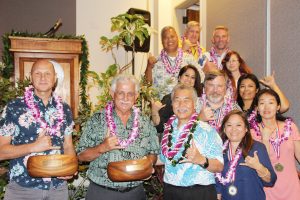State workers on the front lines for the community
Posted on May 29, 2019 in Capitol Connection, Featured, MainHonesty, transparency, responsiveness to citizens. Some cynics would say those aren’t the first words that come to mind in describing government bureaucracies. But those are the values Governor Ige has made a priority of his administration. This issue highlights ways the state is making progress in key areas, improving services, and helping us as consumers.
Q: What is most significant to you about funding the Ige administration received from the 2019 state Legislature?
A. In the end we got most of what we need to continue our momentum in critical areas such as affordable housing and homelessness, improving education as the key to a better life, and supporting our Sustainable Hawai‘i initiative. The community has told us they see these as priorities, and I know we’ll be successful because the Legislature and I share the same core values to help families and those most in need.
Q. Why would you encourage people, especially millennials, to consider state government service?
A. Being a public servant is one of the few jobs where you can impact the broader community every day. Our public employees are our most important asset. They’re on the front lines to help us deliver services to our communities. This year’s outstanding state employees are just some of the many who make life better for all of us and who provide leadership to deliver higher quality services. This dedication is also true of the state Department of Commerce and Consumer Affairs, which plays a vital role in critical areas such as business licensing, consumer protection and insurance. With the start of the hurricane season, now is the time for everyone to check their insurance policies and be prepared.
Q. What is the way forward on water leases for applicants?
A. We’re committed to completing long-term water leases as required by law and will be working with applicants to make clear what the process is. The fundamental change from this legislative session is that the Department of Land and Natural Resources will be more proactive in providing information and assisting applicants.
Q. Why should people take the time to provide input to the Department of Education’s 2030 Promise Plan?
A. The 10-year plan is the next step in what we started with the 2017 Hawai‘i Blueprint for Public Education. It’s an important opportunity to let your voice be heard on ways to improve our schools over the next decade and prepare our students for the future. (For details, go to 808ne.ws/2030Promise and governorige.hawaii.gov/blueprint/.)
Q. What do you want people to know about the first lady’s Jump Start Breakfast initiative?
A. Dawn brings a special perspective to the breakfast program as both a mom and a former third grade teacher. She saw children in her classroom who were hungry and couldn’t focus on their work. Also, she remembers her mom, a school cafeteria baker, working hard to provide quality meals for students. Jump Start Breakfast is one more way we can help students succeed and alleviate some of the pressure on families, as well as promote fresh, local products from our farmers and ranchers.
